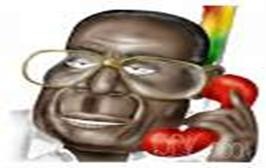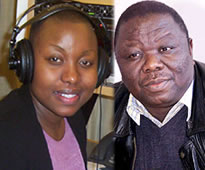Dumisani Muleya
PRESIDENT Robert Mugabe's plan to seek re-election for another five years is in jeopardy as top Zanu PF officials build up resistance to his controversial candidacy which could translate to rule for life.
Mugabe's latest plan — drafted after his initial 2010 proposal was blocked — has started collapsing due to rising resistance, especially from retired army commander General Solomon Mujuru's faction. After thwarting the 2010 bid, the Mujuru camp now wants to stop Mugabe in his tracks again.
Justice minister Patrick Chimanasa on March 30 presented Mugabe's plan to the central committee which entailed the proposal to amend the constitution to hold joint parliamentary and presidential elections in March next year. Local government polls will be held in January.
The plan also says the presidential term will be reduced from six to five years to ensure harmonisation of polls. Parliament will be expanded with the Lower House seats increasing from 150 to 210 and senate seats to 84 from 66. Senators had been expected to be chosen on the basis of party lists in proportion to the number of seats obtained in the Lower House.
And parliament, sitting as an electoral college, would elect a successor if the president cannot continue in office for whatever reason.
However, these proposals — which are largely part of Mugabe's self-preservation measures -— are fuelling Zanu PF wrangles and divisions. Instead of consolidating Mugabe's candidacy, the plan has only helped to widen cracks in the collapsing Zanu PF edifice, threatening Mugabe's attempt to extend his rule.
Sources said the party was divided over Mugabe's candidacy because he was now an electoral liability. The proposal that parliament should elect a successor if the president cannot continue opens up the post to vote-buying, critics say.
Some Zanu PF officials are opposed to the whole idea of amending the constitution to retain Mugabe in power because of the economic meltdown.
Further internal divisions have emerged over plans to call for a special congress to endorse Mugabe's candidacy confirmed amid muffled protests on March 30. Mujuru's faction is privately disputing the claim that Mugabe was ever endorsed, arguing the issue was railroaded without debate by a group of presidential loyalists led by Elliot Manyika.
Manyika and a group of presidential adherents have been fiercely fighting in Mugabe's corner. Two weeks ago Manyika said the party would hold an extraordinary congress to endorse Mugabe's candidacy, but this is also being disputed.
"It has been the tradition of the ruling party to call for a special congress to officially nominate the ruling party's presidential candidate for any impending election," Manyika said in the party mouthpiece, The Voice.
"The extraordinary congress is called by the central committee that is also going to have an extraordinary session on Friday (last week)."
But Zanu PF secretary for administration Didymus Mutasa — who in terms of the party constitution is the secretary for the presidium (the president, two vice-presidents and chairman) when congress convenes — said yesterday Manyika's claims were untrue.
"It's not true, the president has not said so and we have never done that before," Mutasa said. "Why should we have an extraordinary congress when we have just had an extraordinary central committee meeting? They (media) are confusing an extraordinary congress with an extraordinary central committee session. Ask them about that."
Told that in fact it was Manyika who has been saying so, Mutasa said: "That's not true (that a special congress is coming)".
Asked if it was true Zanu PF holds extraordinary congresses to officially nominate a presidential election candidate, he said: "It's not true, we have never done it before". Mutasa has the constitutional mandate to organise an extraordinary congress and is obliged to give at least a six-week notice before the meeting.





No comments:
Post a Comment